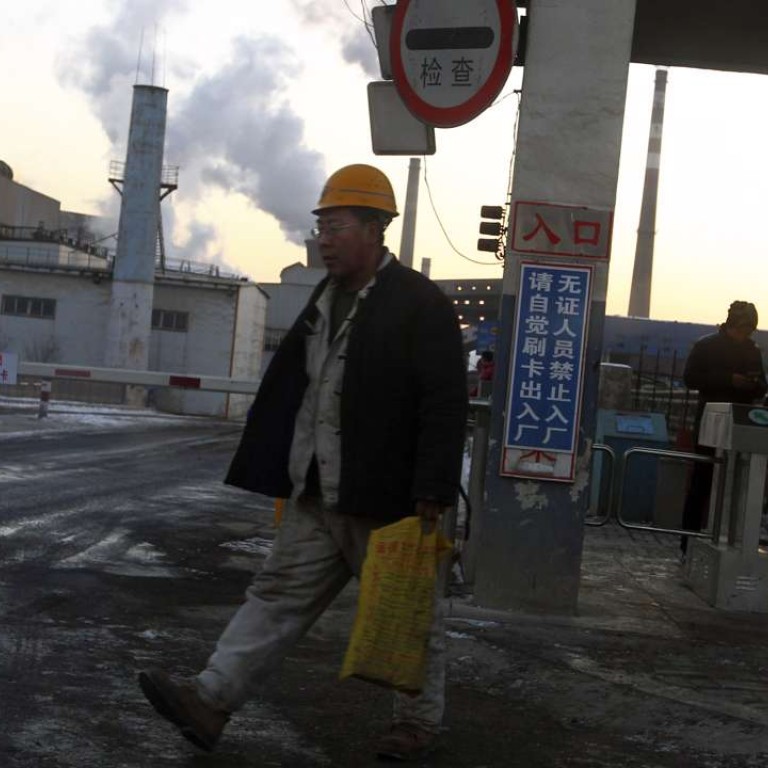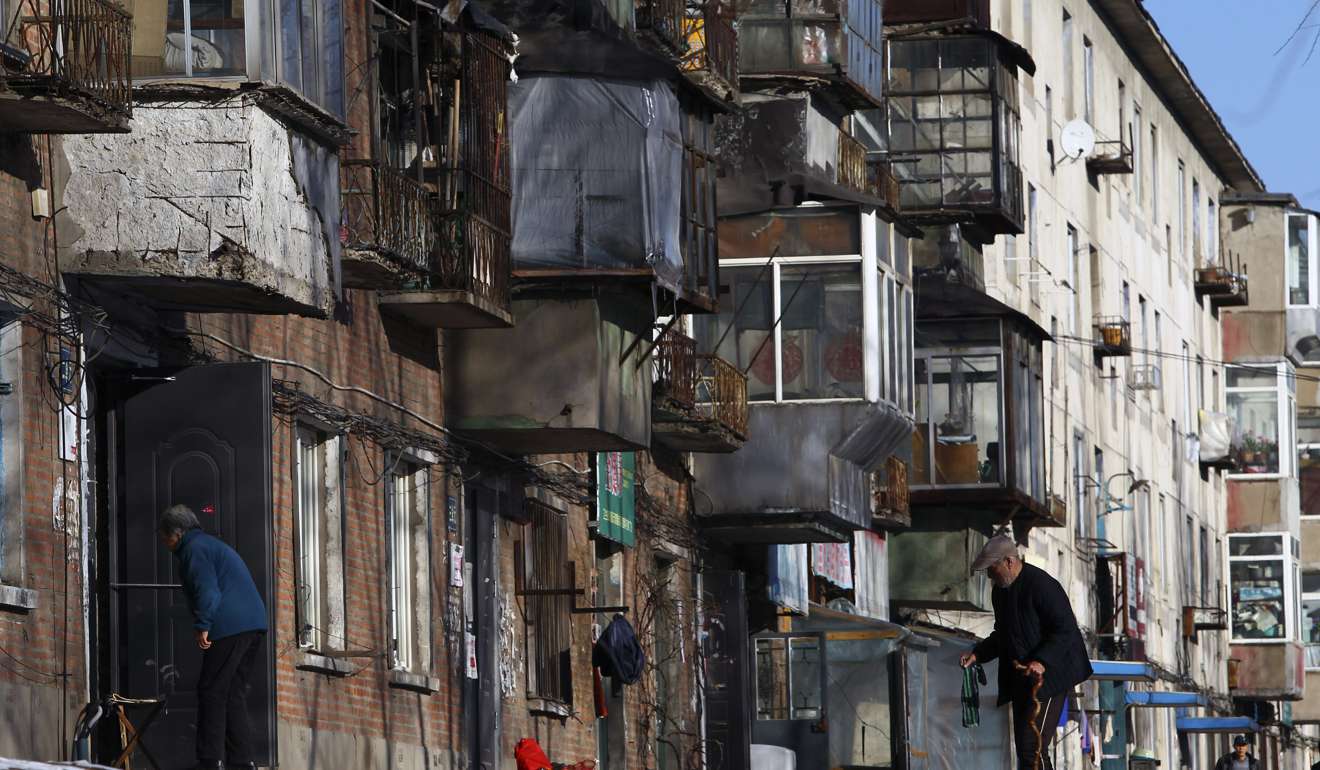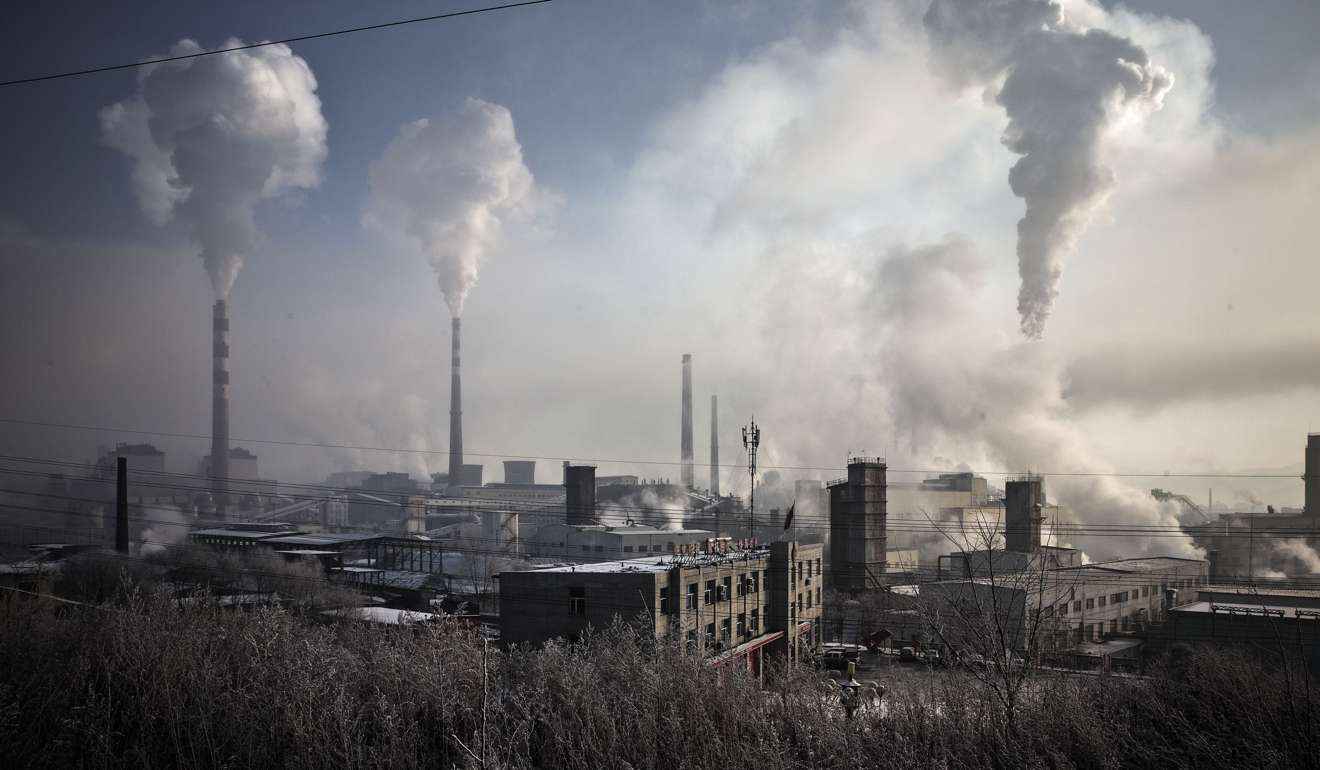
Death by a thousand job cuts: the human cost of China’s zombie firms
Residents of Tonghua in northeast China who lost their jobs when the city’s state-owned steel plant got into difficulties share their stories
Mr and Mrs Chen, both in their late 50s, opened a small bakery three years ago after they quit the nearby state-owned steel plant where they had worked for three decades. There may be a future in running a bun shop, but not at a dying state-run behemoth.
The Tonghua Iron & Steel plant opened in 1958 during China’s experiment with industrialisation, a period known as the Great Leap Forward. As the biggest state steelmaker in Jilin province, on the border with North Korea, the plant provided workers with cradle-to-grave welfare coverage and a sense of belonging, ownership and pride.
But not any more.
On the afternoon of the South China Morning Post’s visit, there were not many customers in the Chens’ bakery - a converted front room in their ground-floor flat - but the couple said running their own small business was far better than working at the steel plant.
Mr Chen described the factory as “half dead” and could barely disguise his contempt for its leaders, whom he blamed for the demise of his former workplace.

When the factory was in trouble a decade ago, the local government invited Hebei Jianlong, a private steelmaker, to take over the factory. Workers were furious about handing over their factory to a private investor, and rallied to oppose the plan.
On July 24, 2009, Chen Guojun, the manager sent by Jianlong to manage Tonghua Iron, was beaten to death by hundreds of angry workers. Only one worker was later charged and jailed for life for Chen’s death.
A year after the riot, which caught nationwide attention, Shougang Group took over Tonghua Iron for 1.5 billion yuan, but quickly discovered that it was buying a dud.
Shougang, itself one of China’s largest state steelmaker, shouldn’t have been surprised. The list of China’s most unprofitable companies is dominated by state enterprises.
Sinopec the oil refiner, Cnooc the offshore oil explorer, Cosco the shipping line, Anshan Iron & Steel and China First Heavy Industries topped last year’s list, with a combined loss of 50 billion yuan.
It gets worse. State companies sitting on 131.7 trillion yuan of assets generated a mere 2.3 trillion yuan in earnings, translating to 1.8 per cent return on assets, and 5 per cent return on equity.
Resentment runs high among former workers at the factory in Tonghua, and they share a potent mistrust of state-owned enterprise management.
“Look, a worker’s monthly salary is about 1,500 yuan to 2,000 yuan, while management decided to give themselves monthly transport allowances of 1,700 yuan,” said a former worker surnamed Zhang. “If there is any solution, it should be to fire all the current management.”
The company had nearly 15,500 employees at the end of 2015 but plans to cut that number to 8,500 by the end of 2020.
Xu Qiangxian chose “voluntary” redundancy from the state employer last September.
Xu, in his early 40s, said he had worked at the steelmaker for 22 years but decided to take a one-off payment of less than 100,000 yuan and quit. “It’s dead, no hope at all,” said Xu, referring to the company.

“The plague in the northeast indicated that those measures did not solve problems,” said Zhou Fangsheng, a former senior official at the state-owned Assets Supervision and Administration Commission.
The evidence is clear in Heilongjiang, Jilin and Liaoning, the three provinces that formed the cradle of China’s heavy industries. Once China’s main industrial base, the region is now known for mass layoffs, ailing economy and exodus of young talent.
The three provinces ranked bottom in economic growth among China’s 31 provinces with Liaoning, the southern neighbour of Jilin, reporting a contraction of 2.5 per cent in 2016.
When President Xi Jinping came to power in 2012 and made “supply-side reform” a hallmark of his economic policy, hopes were high that he was trekking the supply-side economic reforms of former US president Ronald Reagan or former UK prime minister Margaret Thatcher.
China did experience a spurt of reforms in the late 1990s, when former premier Zhu Rongji closed thousands of inefficient state plants across the country, throwing millions out of work, even at a time when public welfare barely existed in the Communist nation.
The shedding of the state, combined with China’s 2000 assession to the World Trade Organisation laid the foundation for double-digit economic growth and prosperity that lasted more than a decade.
Now Xi’s administration is sending mixed messages on state reform. While he has pledged to let the market play a decisive role, he’s also calling for the creation of bigger and stronger state enterprises.
That’s causing confusion, and causing alarm among shareholders of listed state enterprises.
In one instance, shareholders of a Tianjin property developer refused to give the Communist Party a role in its corporate governance, in a rare revolt against the leadership.
Beijing is updating certain aspects of how state assets are managed. A key change is that the government will set up holding companies, invest funds in different state businesses and avoid getting involved in day-to-day management.
In an ideal world, if a company is facing an existential crisis, the state owner would be able to sell it and use the money to invest elsewhere.
But the reality is more complicated. Closing a factory involves lots of layoffs and servicing of bad debts - a scenario that all major stakeholders, including local governments, banks, workers, managers and even suppliers, want to avoid.

